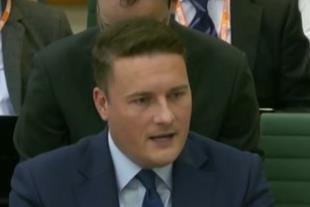Cowper’s Cut 394: The future isn’t what it used to be for Cosplay New Labour

I’ve been writing for a fair while now about my sense that (barring the current top priority of restoring brute financial control) nobody actually knows what the hell they’re doing in English health policy and politics.
This sense was in no way diminished by the session that I attended this week on ’How Can Changes To Incentives Help Deliver The NHS Ten-Year Plan?’ at the Institute For Government.
This isn’t because panellists Sally Gainsbury (Nuffield Trust), Anita Charlesworth (Health Foundation) and Hardeev Virdee (Barts) were less than impressive in their thoughts and reactions.
It’s because they were honest.
And while diplomatically so, all the speakers were clear that not only has the NHS10YP failed to decide what it wants a Cosplay-New-Labour Milburnian early 2000s quasi-sovereign NHS provider organisations and performance league tables to deliver; nor does our national system leadership yet offer clarity on whether and how it wants the key dynamics of competition versus co-operation and devolution versus centralisation to play out, in terms of landing crucial win-win co-operation across local health economies.
What’s the story?
This matters a lot: these are fundamental philosophical points.
Because the English NHS is badly, desperately in need of a story that it can tell itself about itself and about its future.
And it hasn’t got anything approaching such a story.
Nor has it had one for some years.
The NHS had a rough-and-ready, bovver-boy existential survival story during the pandemic (although that era’s ‘Protect The NHS’ slogan turns out to have been profoundly self-defeating).
But since the pandemic ended, such narrative as we had under the Pritchard administration was about denying productivity problems, while gently and ineffectually grumbling for more resources.
Ooops.
We were in desperate need of a convincing story: instead, we got this summer’s NHS Ten-Year Plan.

That NHS Ten-Year Plan is an effective narrative to shape the future of the service in the same way that I am the greatest racehorse ever to win the Grand National, which is to say, not at all.
Towards a plan (and then another)
In the past decade-and-a-bit, NHS long-term plans have essentially been bid documents, aiming to unlock grudging funding increases from our beloved amigos, The Treasury Munchkins. That was the game that was available, and so that was the game that was played. Successfully so, in the Simon Stevens Era.
That went along with a drift to subtly subvert the market fundamentalism of the Lansley reforms, which was visible to members of the Paying Attention Community.

And that subtle subversion worked very effectively. Gosh, after quite a few years, people even started to notice that it had happened.
Tensions between the local and the national; between competition and co-operation; the centralised and the devolved: in the NHS, these are never static. They are questions which, short of religious faith in either state totalitarianism or market totalitarianism, there is no absolutely right answer. They are contingent on broader circumstances of economics and politics. They are the dynamics of the system: I know this is obvious, but sometimes, the obvious does need stating.
But The Stevens Era - more precisely, Simon Stevens Mark Two - developed an intellectual narrative coherence with its decisive system move away from competition and towards integration.
One could not accuse The Pritchard Era of having any similar discernible narrative. To have recovered the English NHS well and durably from the pandemic would have challenged the best and freshest leadership possible.
Unfortunately, post-pandemic, the English NHS lacked the leadership and drive to achieve such a Herculean task, and so it was not successfully done.
Taking back control-ish

You may already have enjoyed Health Service Journal deputy editor Dave West’s two-part commentary on ‘how politicians took back control of the NHS’. Dave is a smart and thoughtful man: his analysis is always worth reading, and his access to the network of current insiders is good.
Dave is particularly strong across both pieces in highlighting the significant eminence grise role that Alan Milburn plays for Wes Streeting. Now, naturally I would be inclined to support this hypothesis of the DHBSC power dynamic, having been writing about it for some years.
But the main takeaway from reading Dave’s well-researched pieces is an heroic level of ‘what the fuck?’ about senior ministers’ fathomless numerical idiocy over the pay deal for junior doctors.
Dave writes that “NHSE leaders had to repeatedly explain that little to none of the increase would be left, after it had covered the sizeable pay rises government had agreed with staff, including resident doctors, and other cost pressures. It also had to battle to find cash to sustain – albeit in a limited way – the “uncapped” elective recovery fund inherited from the Conservatives, but not covered in the Department of Health and Social Care budget.
Said one senior official involved at the time: “What [ministers] really wanted to do was go ‘look, we care about the NHS, [the new funding] is going to make a huge difference to you on the ground and mean we can do a lot of the cool fancy things we want to do’. They appeared to forget that they’d already agreed to a pay deal [which would swallow most of the extra money] … But basically the NHS was saying, ‘well, we agree that you want to do all these wonderful things, but by the way, the money is spent, there’s not really anything much left.
“Then [ministers] got really cross. They got quite frustrated about the fact that they’d taken a massive political hit on [increasing] national insurance contributions [and had little in return]”.”
One must have a heart of stone not to laugh at this level of fiscal incompetence.
A failure by ministers and their advisers to have adequately modelled the financial impact of a fairly generous resident doctors pay settlement on the DHBSC’s financial envelope is not a small failure, by any means.
Nor is it for lack of numbers of advisors who could between them all presumably summon up some basic maths. Dave writes that, “Mr Streeting has five special political advisers, more than many cabinet colleagues. He has brought in at least three further political expert policy advisers and overseen several politically-led civil service hires, while also calling in trusted expert outsiders for particular decisions.
“Why is he (Streeting) so keen on such a wide group of new expert advisers? It comes back to the need to bring politics to bear on the NHS.
“A close observer said of Mr Milburn in particular: “He remains a very political figure. And when the system comes back and says, ‘maybe you don’t want to do that, there are all these problems’ [he can say] ‘I’ve been here before, you can push through this.’ Wes likes having that challenge function”.”
Yeah. That’s gone really well for him. It’s a Triumph.
Recommended and required reading
What? You mean that unions’ abandoning the Pay Review Body means that NHS Employers, led by the time-server’s time-server Danny Mortimer, has been a complete failure at taking the government out of pay and conditions negotiations? Say it ain’t so, Financial Times!
BBC News reports on accusations that the Welsh Government is manipulating Welsh NHS data.


